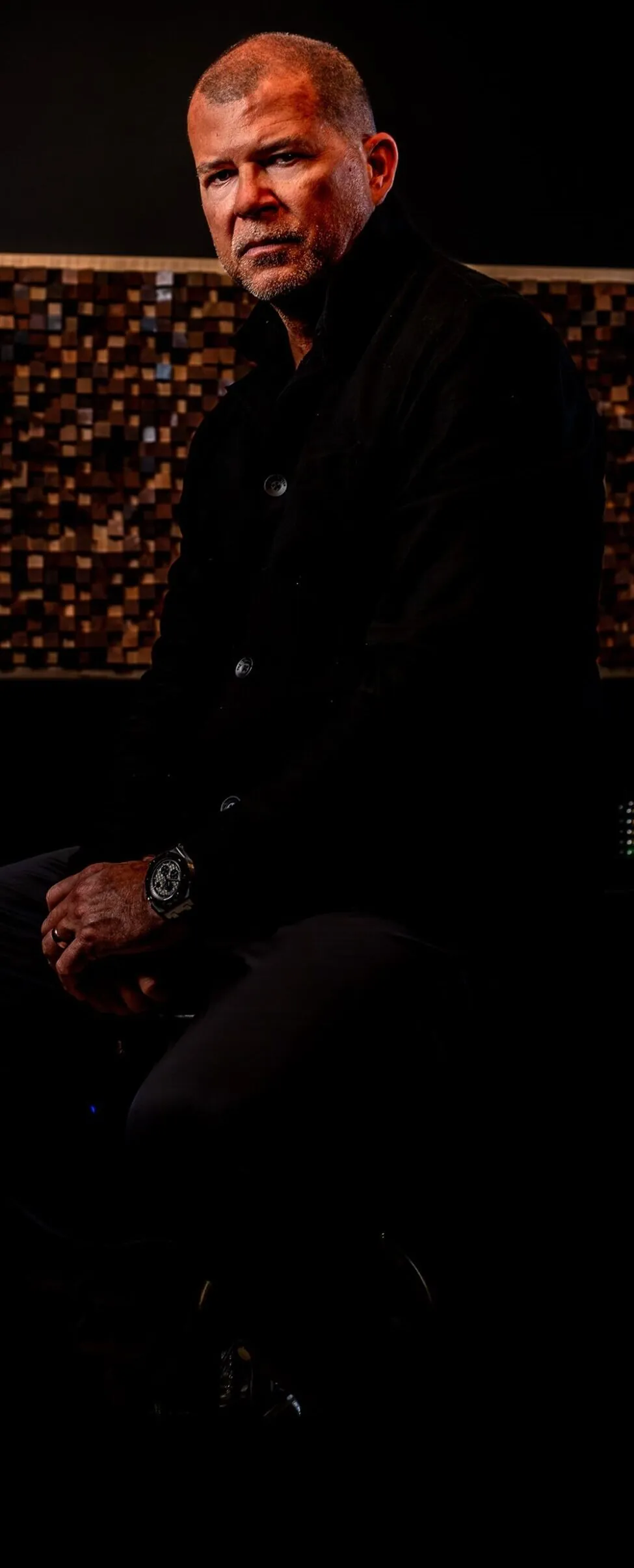Ohio is among the top 10 states for the number of calls made to the National Human Trafficking Hotline. Sex trafficking is a grave offense in Ohio, carrying harsh penalties under both state and federal law.
Defined under Ohio Revised Code § 2905.32, sex trafficking involves compelling or coercing another person into sexual activity for commercial gain. This can include the use of force, fraud, or manipulation, often targeting vulnerable individuals.
Sex trafficking charges may arise from either organized criminal operations or smaller, isolated incidents. For example, an individual who uses threats or deceit to force someone into prostitution can be prosecuted under this statute. Penalties for sex trafficking are typically classified as a first-degree felony, with potential prison sentences of up to 15 years without parole.
Cincinnati Lawyer for Sex Trafficking Charges in Ohio
The consequences of being convicted of sex trafficking in Ohio include lengthy prison sentences which must be served entirely from prison.
If you are charged with sex trafficking, seek legal representation from a criminal defense attorney who can protect you and develop a strong defense. Do not speak to law enforcement without your attorney present to safeguard your rights from the outset.
The Wieczorek Law Firm, LLC is led by Mark Wieczorek, a former Ohio prosecuting attorney. Mark Wieczorek has defended clients since 2008 and serves all of Ohio, including Hamilton County, Butler County, Clermont County, Brown County, Highland County, Clinton County, Preble County, Scioto County, Greene County, Montgomery County, and Warren County, and Southern Ohio.
Call Mark Wieczorek at (513) 317-5987 for a free consultation or fill out our online contact form.
- Overview of Sex Trafficking Cases in Ohio:
- Sex Trafficking under Ohio Law
- Examples of Sex Trafficking in Ohio
- Federal Sex Trafficking Crimes
- What Are Specific Defenses to Sex Trafficking Charges in Ohio?
- Frequently Asked Questions
- Additional Resources
- Hire a Lawyer for Sex Trafficking Charges in Hamilton County, OH
Sex Trafficking under Ohio Law
Trafficking in Persons
Ohio Revised Code Section 2905.32 criminalizes the act of knowingly recruiting, transporting, harboring, or maintaining a person for involuntary servitude or sexual exploitation. This includes situations where the offender uses coercion, fraud, or manipulation to compel the victim. For minors or individuals with developmental disabilities, no evidence of coercion is required—the prosecution must prove only that the offender knew or had reasonable cause to believe the victim belonged to a protected category.
Trafficking in persons is a first-degree felony in Ohio. For offenses committed after March 22, 2019, the penalty is a mandatory indefinite prison term of 10 to 15 years. Those convicted may also face fines, restitution, and mandatory lifetime registration as a sex offender. In cases involving minors, penalties are particularly severe due to the vulnerability of the victim.
Exploitation Through Material or Performances
Under Ohio law, facilitating a person’s participation in obscene or sexually oriented performances or productions for profit is also a form of trafficking. Offenders who exploit minors in this manner are charged with a first-degree felony. Courts impose similarly severe penalties as those for trafficking in persons, ensuring accountability for individuals exploiting others for financial gain.
Examples of Sex Trafficking in Ohio
Ohio law under Revised Code Section 2905.32 categorizes sex trafficking offenses based on the circumstances and severity of the crime. For instance, a first-degree felony might involve organized efforts to traffic minors for commercial sexual exploitation, such as using social media to lure victims and transport them across state lines for prostitution.
Another example could involve the attempted recruitment of a minor under fraudulent pretenses, such as offering a fake job opportunity. Even if no physical exploitation occurs, the attempt itself can lead to significant legal consequences.
Cases of trafficking may also involve digital platforms, where traffickers post advertisements or solicit victims online. These activities, especially when involving minors or persons with developmental disabilities, are subject to the harshest penalties.
Federal Sex Trafficking Crimes
Trafficking in Persons for Commercial Sex Acts
Section 1591 of the U.S. Criminal Code directly targets those involved in sex trafficking, criminalizing the recruitment, harboring, transportation, or maintenance of individuals for commercial sex acts. The law distinguishes between minors and adults, offering heightened protections for children. For victims under 18, no proof of force, fraud, or coercion is required to establish a crime; the act of trafficking alone is sufficient for liability. This reflects the understanding that minors cannot legally consent to exploitation. In contrast, when adults are the victims, the law requires evidence of force, threats, or deceit to convict traffickers. Penalties for this offense include a mandatory minimum of 10 years in prison, with life sentences possible in cases involving minors under 14 years of age or when severe force or coercion is used.
Enticing Travel for Prostitution or Sexual Exploitation
Under Section 2422 of the U.S. Criminal Code, it is illegal to persuade, induce, or coerce an individual to travel across state or international boundaries for prostitution or other criminal sexual acts. This provision includes using methods such as mail or electronic communication to facilitate the crime. When the victim is a minor, the offense becomes more severe, as the exploitation of children for commercial sex is treated as especially heinous. Violators face penalties of up to 20 years in prison for general offenses, while crimes involving minors carry mandatory minimum sentences of 10 years and can result in life imprisonment.
Transporting Minors for Prostitution
Section 2423 explicitly prohibits transporting individuals under the age of 18 across state or international borders to engage in prostitution or any illegal sexual activity. This law recognizes the unique vulnerability of minors and holds offenders accountable even if no physical force or coercion is involved. The penalties for this offense are severe, with a minimum prison sentence of 10 years and potential life imprisonment. This reflects the federal government’s zero-tolerance policy for the exploitation of minors in sex trafficking schemes.
Sexual Exploitation Abroad
Section 2423(c) also extends federal jurisdiction to U.S. citizens or permanent residents who travel abroad to engage in illicit sexual conduct, including commercial sex acts involving minors. This provision ensures that offenders cannot evade justice by exploiting children outside U.S. borders. In addition to targeting direct perpetrators, the law penalizes individuals who facilitate or organize such travel for profit or private gain, knowing it will result in sexual exploitation. Violators can face fines and imprisonment of up to 30 years.
What Are Specific Defenses to Sex Trafficking Charges in Ohio?
Challenging Intent to Exploit
Intent is a critical element in sex trafficking cases under Ohio Revised Code Section 2905.32. A defense attorney may argue that the accused did not knowingly participate in trafficking-related activities, such as recruitment or harboring for illegal purposes. This defense often involves scrutinizing the evidence presented by the prosecution, including communications or financial records.
Lack of Knowledge of Victim’s Age or Disability
The defense can present evidence showing that the accused had no reasonable cause to believe the victim’s age or condition. This defense might involve witness testimony, inconsistencies in the victim’s statements, or evidence demonstrating a lack of intent to exploit.
Consent and Lack of Coercion
While Ohio law imposes strict liability for trafficking minors, defenses may focus on proving that no coercion or fraud was involved in cases of adult victims. This could include presenting evidence that interactions were consensual or that the accused had no intent to exploit the victim.
Misapplication of Trafficking Laws
A defense strategy may involve arguing that the defendant’s actions do not meet the statutory definition of trafficking. For example, an attorney may argue that the defendant’s conduct involved no recruitment, harboring, or exploitation as defined under Ohio law.
Frequently Asked Questions
- What is considered sex trafficking in Ohio?
Sex trafficking involves recruiting, harboring, transporting, or exploiting someone for commercial sex acts through force, fraud, or coercion, as defined in Ohio Revised Code Section 2905.32. - How does Ohio law treat cases involving minors?
Minors are treated with heightened protections. Coercion is not required to convict someone of trafficking a minor under Ohio law. - What penalties do first-time offenders face for sex trafficking in Ohio?
First-time offenders convicted of trafficking in persons face a first-degree felony charge, which carries a mandatory indefinite prison term of 10 to 15 years. - Can someone be charged with sex trafficking even if no physical harm occurred?
Yes, under Ohio law, coercion does not need to involve physical harm. Fraud, manipulation, or exploiting vulnerabilities can suffice for a charge. - What should a person do if they are accused of sex trafficking?
Anyone accused of sex trafficking should consult a criminal defense attorney immediately to evaluate the charges and begin building a defense. - Are there any diversion programs available for sex trafficking charges?
Diversion programs are generally not available for sex trafficking charges due to their classification as serious felonies. - What role does evidence play in sex trafficking cases?
Evidence such as digital communications, witness testimony, and financial records is critical. However, the defense can challenge the validity and admissibility of such evidence. - Are there additional penalties for trafficking across state lines?
Trafficking across state lines can lead to federal charges, which may result in even harsher penalties in addition to state-level consequences. - What is the difference between labor trafficking and sex trafficking?
Sex trafficking involves commercial sexual exploitation, while labor trafficking involves forcing individuals to perform labor or services through coercion or fraud. Both are addressed under different sections of the law.
Additional Resources
- Ohio Revised Code Section 2905.32 | Trafficking in Persons – This section of the Ohio Revised Code defines the crime of trafficking in persons, including key elements such as recruiting, harboring, or coercing individuals for exploitation. It outlines penalties, including mandatory prison terms, and provides definitions of terms like “compelled” and “involuntary servitude.”
- Ohio Revised Code Section 2905.31 | Definitions for Sections 2905.31 to 2905.33 – This section of the Ohio Revised Code provides definitions for terms used in trafficking laws, such as “involuntary servitude” and “obscene material.” It helps clarify legal terminology for the enforcement and prosecution of trafficking crimes in Ohio.
- Governor’s Ohio Human Trafficking Task Force – The Ohio Human Trafficking Task Force focuses on preventing trafficking, protecting victims, and supporting investigations and prosecutions. The website offers resources, training materials, and an overview of the state’s anti-trafficking initiatives.
- Ohio Attorney General’s Human Trafficking Initiative – This webpage from the Ohio Attorney General’s Office provides information about the Human Trafficking Initiative, which focuses on combating trafficking through awareness, victim services, and legal action. It includes tools for reporting trafficking and accessing victim services.
- U.S. Department of Justice | Human Trafficking – The U.S. Department of Justice’s webpage on human trafficking outlines federal laws, resources for victims, and the department’s strategies for combating trafficking. It provides access to reports, legal definitions, and contact information for reporting trafficking incidents.
Hire a Lawyer for Sex Trafficking Charges in Hamilton County, OH
If you or someone you know is facing accusations or charges of sex trafficking in Cincinnati, seek legal representation without delay. Speaking to law enforcement without a lawyer can significantly increase the risk of wrongful conviction. To protect your rights and ensure a fair process, consult with an experienced criminal defense attorney immediately.
The Wieczorek Law Firm, LLC represents clients in Southern Ohio, including the cities of Cincinnati, Columbus, Akron, Dayton, Toledo and South Point.
Contact Mark Wieczorek at (513) 317-5987 for a free consultation or fill out our contact form today.

